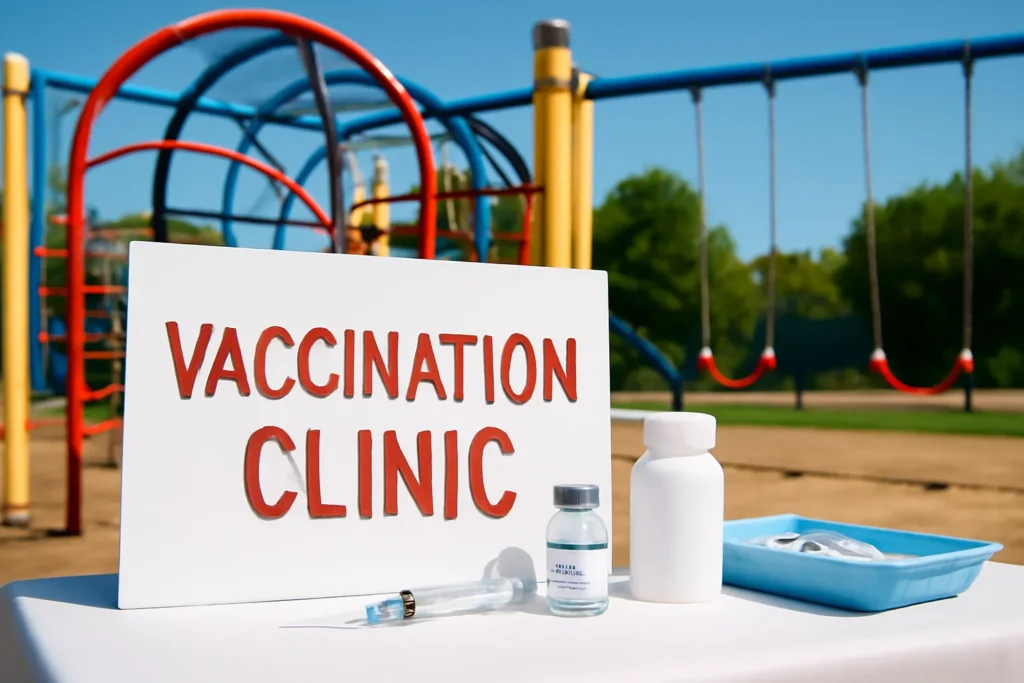A Wake-up Call in Sedgwick County
A mother in Sedgwick County, Kansas, didn’t think much of her child’s fever. Days later, a rash appeared, and suddenly, her family was thrust into a situation that has public health officials deeply concerned: the first confirmed measles case in the county since 2017. The patient—a child aged 5 to 10—was unvaccinated, mirroring a now-familiar pattern resurfacing across the Midwest. Sedgwick’s case might seem isolated on its own, but it’s just one piece in a disturbingly growing statewide measles outbreak that’s thrust Kansas into the national spotlight.
As of this week, 48 measles cases have been confirmed across eight southwestern Kansas counties—Finney, Ford, Grant, Gray, Haskell, Kiowa, Morton, and Stevens—according to the Kansas Department of Health and Environment (KDHE). The Sedgwick incident is especially troubling given the time lapse since the last recorded county case in 2017. Across the state, health officials are racing against time, conducting exposure tracing and issuing advisories. The statistics tell a troubling story: Out of those 48 cases, a staggering 40 involve people who were not vaccinated. Four were age-appropriately vaccinated, and three had unknown vaccination status.
Measles—a disease the Centers for Disease Control and Prevention (CDC) once declared eliminated from the U.S. in 2000—has returned with a vengeance, exploiting the gaps left by missed or refused vaccinations. The consequences are more than statistical; they are deeply human. In Kansas, families are remembering what it’s like to worry not only for vulnerable children, but also for the broader community’s health resilience.
The Real-World Price of Vaccine Hesitancy
What’s fueling this resurgence? Anti-vaccine misinformation, amplified across social media platforms and some conservative political circles, has undermined years of steady public health progress. Harvard public health expert Dr. Ashish Jha warns, “The erosion of vaccine confidence threatens everyone, not just those who choose not to vaccinate.”
Beyond individual choice, the ripple effect of vaccine refusal is felt across entire communities. Infants, immunocompromised people, and the elderly rely on robust “herd immunity” for protection. Reduction in vaccination rates below the CDC-recommended threshold (usually around 95%) opens the door for highly contagious diseases, like measles, to spread rapidly. Measles is an unforgiving adversary: a single infected person can pass the disease to up to nine out of ten susceptible people in close contact. This is not theoretical risk. Kansas families are confronting it right now.
In Sedgwick County, updated public health guidance now allows infants 6 to 11 months to receive the MMR (Measles, Mumps, Rubella) vaccine ahead of schedule. The move underscores the urgency. According to Adrienne Byrne, director of Sedgwick’s health department, this early dosing is “critical” given current exposure risks. Infants, as always, are especially vulnerable to complications—pneumonia, encephalitis, even death.
“The notion that measles is a harmless childhood illness is a dangerous relic of the past—a convenient myth that anti-vaccine rhetoric keeps alive at our collective peril.”
Nationally, the specter of vaccine-preventable disease is not just a Kansas problem. According to the CDC, the U.S. saw a 17-year high in measles cases in 2023, with outbreaks cropping up in communities where vaccination coverage lags. Recent research from the Pew Research Center shows distrust in medical institutions—fueled by vocal anti-vaccine activists and political opportunists—has measurably increased since the COVID-19 pandemic. Left unchecked, this sentiment undermines the foundational promise of American public health.
Lessons for a Community—and a Nation
A closer look reveals the cost of conservative-led rollbacks on public health infrastructure and vaccine mandates. In states like Kansas, where personal belief exemptions are permitted, vaccination coverage is particularly vulnerable. Policy decisions made in the name of “parental choice” tip the scales further against community health. As history reminds us, public health is at its strongest not in isolation, but as a collective endeavor—one that cherishes both personal liberty and social responsibility.
When conservative policymakers downplay the seriousness of infectious diseases, communities pay the price. It’s no coincidence that measles, once on the brink of eradication in America, now stalks states with weakened vaccine laws. The Kansas outbreak is a warning. Ask yourself: who benefits from sowing distrust in life-saving science? It isn’t the working mother hoping her newborn won’t be exposed at daycare. It isn’t the cancer survivor relying on the immunity of their neighbors.
Current events in Kansas demand a reaffirmation of the progressive values that built our modern public health system: equality, compassion, and the recognition that everyone’s fate is intertwined. As health departments scramble to reach affected families with testing and vaccines, the collective lesson is clear: science, not skepticism, is our wisest path forward.
For those living in Kansas—and in every community shaken by preventable outbreaks—checking vaccination status isn’t just a personal duty. It’s an act of civic solidarity. Only by restoring trust in our public institutions, deplatforming anti-science rhetoric, and insisting on rigorous vaccination standards can we hope to keep measles, and other preventable diseases, from reclaiming ground we’ve fought so hard to gain.

